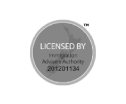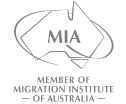Migrating to Australia under the skilled migration program requires meticulous financial planning, particularly for the critical first three months when establishing your new life. This phase involves navigating initial setup costs, understanding regional cost variations between cities like Perth and Brisbane, and implementing strategic budgeting to avoid financial stress. Drawing from recent financial analyses and migrant experiences, this guide provides a detailed financial roadmap comparing these two popular destinations for skilled professionals.
Pre-Arrival Financial Preparation
Visa and Documentation Costs
- Skilled Migration Visa Fees: Expect AUD $4,045 for the Employer Nomination Scheme (subclass 186) under the Direct Entry stream, with a 5% increase from 2024
- Skills Assessment: Varies by profession ($500-$2,000 AUD through bodies like VETASSESS or Engineers Australia)
- Language Testing: IELTS/PTE exams average AUD $400
- Health Checks and Police Clearances: Budget AUD $500 for medicals and background checks
Relocation Fund Essentials
- Minimum Buffer: Three months’ living expenses (recommended by financial planners)
- Currency Transfer: Use services like Wise or OFX for optimal exchange rates
- Documentation: Certified copies of qualifications, driver’s license, and birth certificates
Initial Setup Costs
Banking and Financial Infrastructure
- Account Setup: Major banks (Commonwealth, ANZ, NAB, Westpac) offer migrant-specific accounts with no monthly fees for first year
- Initial Deposit: AUD $2,000–$5,000 recommended for immediate expenses
- Tax File Number (TFN): Apply immediately upon arrival for employment and banking
Accommodation Establishment
| Expense | Perth | Brisbane |
|---|---|---|
| Rental Bond | 4–6 weeks rent | 4 weeks rent |
| Advance Rent | 2–4 weeks | 2 weeks |
| Utility Setup | $300–$500 | $250–$400 |
| Furniture | $1,500–$4,000 | $1,200–$3,500 |
Monthly Living Expenses Breakdown
Housing Costs
- Perth Rentals: $500–$700/wk for city-center 1BR vs. $400–$600 in suburbs
- Brisbane Rentals: $450–$650/wk CBD vs. $350–$550 outer suburbs
- Utilities: $180–$300/month (electricity, gas, water)
Transportation
- Public Transit: Perth SmartRider ($166/month) vs. Brisbane Go Card ($150/month)
- Car Ownership: Comprehensive insurance ($100–$180/month), fuel ($1.80–$2.10/L)
Food and Essentials
| Category | Perth (Monthly) | Brisbane (Monthly) |
|---|---|---|
| Groceries | $400–$600 | $380–$550 |
| Dining Out | $200–$400 | $180–$350 |
| Mobile Plan | $30–$60 | $30–$60 |
| Internet | $70–$90 | $65–$85 |
City-Specific Financial Strategies
Perth Financial Landscape
- Higher Housing Costs: Offset by lower public transport expenses compared to eastern cities
- Job Market: Mining and engineering sectors offer higher entry-level salaries
- Budget Tip: Shared housing in suburbs like Joondalup reduces rental costs by 30%
Brisbane Financial Advantages
- Lower Accommodation: 15–20% cheaper rents than Perth CBD
- Suburban Savings: Areas like Ipswich offer 40% rent reductions
- Climate Savings: Reduced heating costs in mild winters
90-Day Financial Checklist
Month 1: Establishment Phase
- Open local bank account within 48 hours of arrival
- Purchase essential SIM card with data package
- Apply for TFN and Medicare registration
- Secure short-term accommodation (hostels/Airbnb) while apartment hunting
Month 2: Stabilization Phase
- Transition to long-term housing
- Establish utility connections
- Develop grocery shopping strategy (ALDI for staples, local markets for produce)
- Implement budget tracking via apps like Pocketbook
Month 3: Optimization Phase
- Review transportation costs (consider bicycle in Brisbane’s flat terrain)
- Explore free recreational options (beaches, parks, community events)
- Initiate superannuation account setup
- Begin building emergency fund (target 10% of income)
Budgeting Tools and Resources
- Cost Comparison: Use Finder for real-time price checks
- Shared Economy: Car-sharing services like GoGet reduce vehicle costs
- Community Support: Migrant resource centers offer free financial counseling
- Tax Planning: Understand superannuation contributions for long-term savings
Final Financial Safeguards
- Emergency Fund: Maintain accessible $3,000–$5,000 AUD
- Income Buffer: Assume 8–12 week job search timeline despite skills shortage
- Healthcare Buffer: Even with Medicare, budget for dental/optician costs
Perth offers higher potential earnings in resource sectors but demands rigorous housing budgeting, while Brisbane provides milder living costs with strong opportunities in healthcare and education. By implementing this three-phase financial strategy and leveraging cost-saving practices, skilled migrants can transform financial uncertainty into stable foundations for long-term Australian residency.










